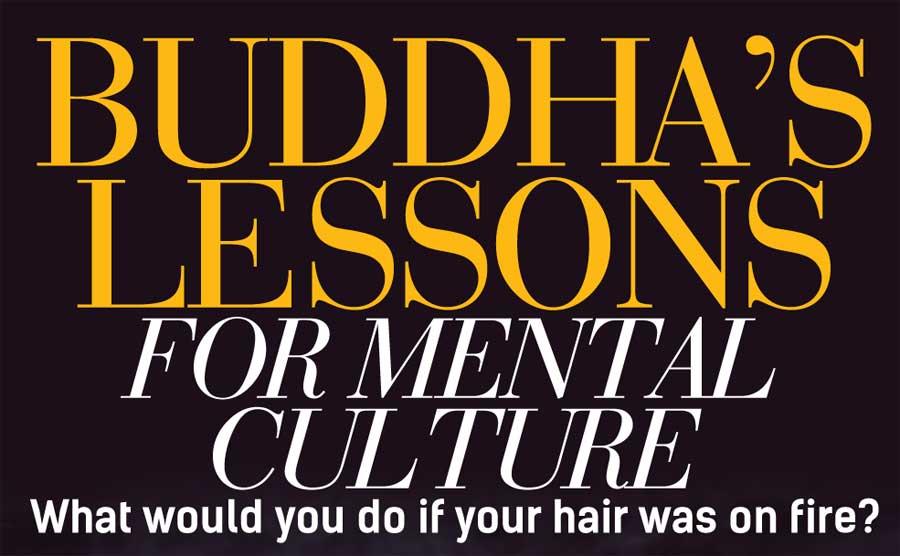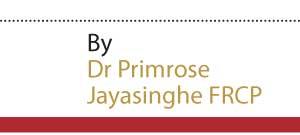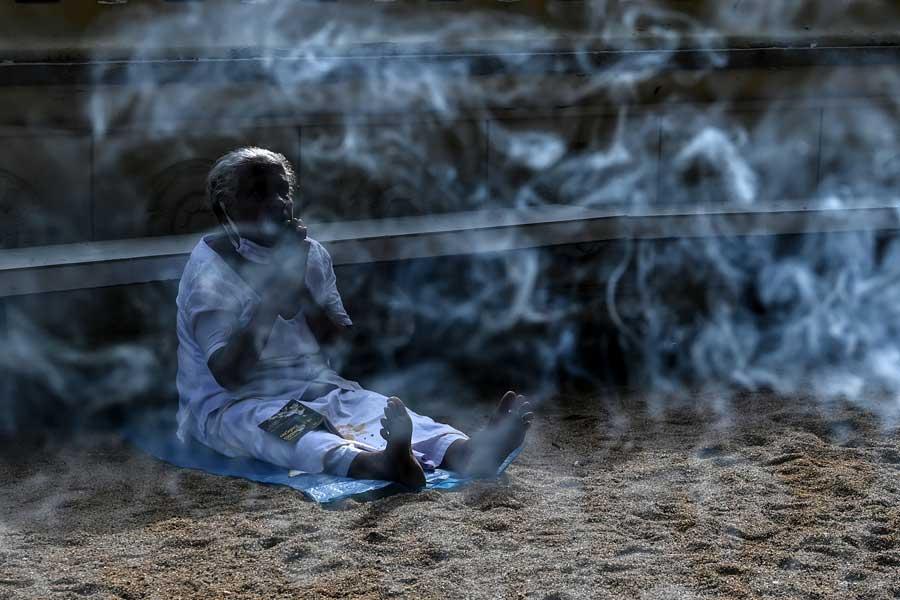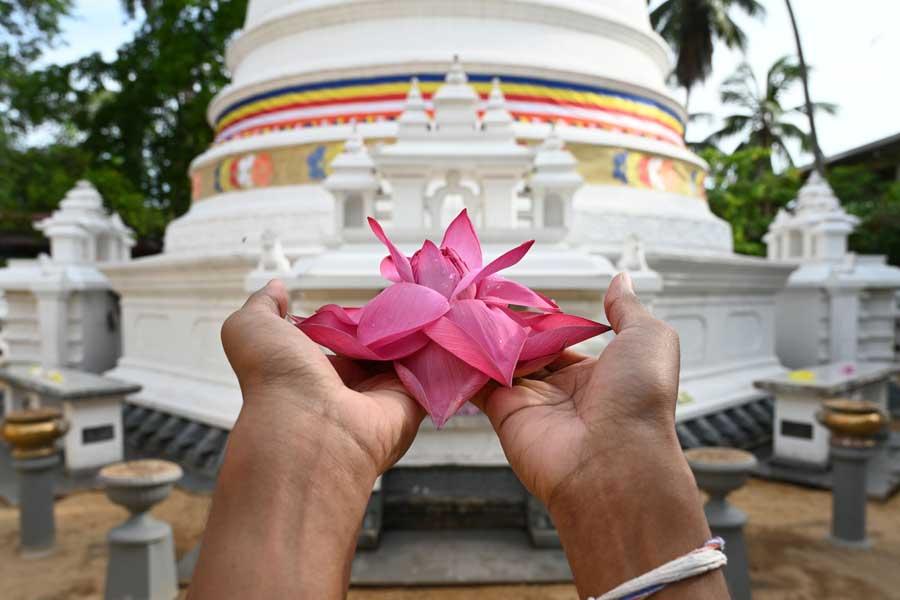Reply To:
Name - Reply Comment

I would bet anything that if anyone’s hair was on fire, he or she would be in a state of frenzy trying desperately to put the fire out by whatever means possible! So why did the Buddha pose this seemingly awkward question? To confirm that this is what one is expected to do as a matter of great urgency, under such circumstances. 
No-one in his or her right mind would be doing anything else in this predicament. Our existence in this world (samsāra) is also similar. The ‘time factor’ is so brief that it is fleeting. Life can quite literally come to an end before we finish taking a breath – hence the analogy, to stress the importance of knowing that life is short. So the need to evaluate urgently one’s next move in this particular existence, with a view to ending samsāra, is important.
No-one can be certain as to what might happen to them from one minute to the next. Depending on their own personal spiritual beliefs, it may be that they bank heavily on the divine – and the “plans” made for their soul. This is reassuring, as it means the person believes that there is someone out there to steer them through what is to come. But what if this status quo does not exist? Then, one could be consumed with a desire to find a serious solution to the uncertainty of our existence - much like in the above scenario. Time is of the essence.
Has the Buddha got any advice? The Buddha is not a God of any kind, so He cannot provide divine answers and His Teaching is not a religion; hence His advice may be applicable to all human beings, irrespective of their religious inclination. Therefore it may be worth considering what The Buddha taught.
"First and foremost, one has to contend with a few “norms” the Buddha has brought forth for our consideration"
First and foremost, one has to contend with a few “norms” the Buddha has brought forth for our consideration: one is that of rebirth. It means that this life is just one link in a long chain of existences. One could exist in any form, such as animals, deities and other unseen beings, or indeed as human beings. Many people believe that the continuation of life is very real and acknowledge, for example, the research work done by Professor Ian Stephenson and others regarding this phenomenon of rebirth. Much research on rebirth is presently taking place in the world as this phenomenon appears to interest many scientists. According to the Buddha, rebirth may take place in any of the realms of existence (31 in all), not necessarily in the human realm alone, unless one has reached the end of the cycle of rebirth – that is, Nirvāna – the ultimate goal, after which there is no rebirth. The Buddha advises that we must attempt to cease this cycle of rebirth by reaching Nirvāna. The number of lives each one of us must go through until then is said to be so huge that He discourages people from exploring the past. As this life comes to an end, another is said to begin depending on the balance of accrued good and bad karma. Karma is the outcome of one’s conscious actions, good or bad.

Gautama Buddha discouraged people from exploring the past (AFP)
"As this life comes to an end, another is said to begin depending on the balance of accrued good and bad karma"
The Buddha teaches that every event or “effect” that happens is a result of a given “cause”. In science lessons at school we are taught that “every action has an equal and opposite reaction”. While the two may not be identical in meaning, it is nevertheless a useful comparison. For every conscious action performed by the mind, body or word there is a relevant reaction; thus good actions beget good karma and bad actions beget bad karma. This is described in the Patichcha Samuppada or the Principle of Cause and Effect, also known as the Doctrine of Dependent Origination.
Three actions can produce good karma – Dāna (the act of giving), Seela (living a moral life) and Bhāvana (meditation). Involving oneself in Dāna helps reduce the urge to crave material things, ultimately leading to the reduction of the number of one’s existences in samsāra. Living a moral life according to the tenets described by the Buddha – that is, the Pancha Seela or five precepts for daily maintenance of good conduct – will put you in good stead for a favourable life. Bhāvana, specifically the Vipassana form of meditation is a practice that was developed by the Buddha for mental culture. It is a forerunner for the development of wisdom, which plays a great role in the understanding of Nirvāna.
"For every conscious action performed by the mind, body or word there is a relevant reaction"
Now we have identified the best means to help ourselves to shorten our sansāric existence, it would also be useful to find out what will interfere with this endeavour, so we may refrain from them. These are collectively called Hindrances or Neevarana. They deal with Lust (Kāma-chanda), Anger (Vyāpāda), Sloth and Torpor (Theena Middha), Restlessness and Worry (Uddhacha Kukkucha) and Doubt (Vichi-kichcha). These need a further read, but are not difficult to understand.
Once the above factors are acknowledged and accepted by the novice, one can promptly get down to the business of finding answers to the causes of Existence, namely Avijjā (Ignorance) and Thrushnā (Craving). In this way, you are very likely to reach the Noble Eightfold Path – the road to Nirvāna and the liberation from samsāra. Do this as fast as you can and you will find the metaphorical fire in your hair is completely extinguished!
Enjoy the significance of Vesak. May all beings be well and happy!
